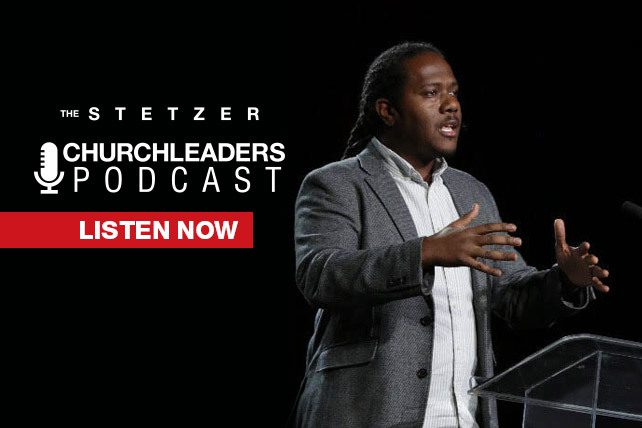“Pharaoh had individual sin, and he surrounded himself with other people in his life who were not willing to help hold him accountable to do the work that he needed to do in regards to how he saw Hebrew people. So that individual sin that Pharaoh had when he gets exalted to a position of Pharaoh starts to spill over and distort the legislation that he passes in his position of leadership.”
“If we are going to be repairers of the breach and ambassadors of reconciliation, we can’t have a language that the rest of the world is not using or we we can’t shy away from having conversations with the rest of the world about the reality of living in the midst of the fallenness that we encounter. It’s not to say that we allow the rest of the world to dictate how we think about those things and define those things, but we need to have a way to define them as Christians that’s rooted in the gospel.”
“One of the assumptions that some listeners may be having is that this is a book just about race. And when I talk about privilege, I intentionally make the conversation much more expansive.”
“I am all about having the difficult conversations, but leading with Scripture. We don’t have to reinvent anything; this stuff is all in the biblical text.”
“Don’t introduce a difficult topic like this in a sermon. When it’s just one-way transactions, then people who have questions don’t have space to give voice to those questions.”
“One of the most important things is having common definitions because if you don’t have common definitions, everybody’s just going to make their own assumption about what you mean when you use language like this, and that’s going to lead to chaos.”
“When you just want to boil things down and say, ‘We just want to serve the poor, we just want to serve the vulnerable, we just want to serve those in need,’ there are still going to be blind spots.”
“The church right now is so scared of the particularities. We don’t want to believe that there really is a particularity to this. We want to do the universals: Let’s just love the poor. Let’s just go and share the gospel messages.’ And all that’s nuanced by the the the diversity of our embodiment.”
“If we’re not willing to get down into the nuance, then we’re ultimately going to have a generic evangelism that’s not really contextual and going to meet people in the most meaningful and profound and transformative ways.”
Mentioned in the Show
Acts 16:16-40
Exodus 1:6-2:10
John 13:34-35
Philippians 2
Romans 12:2, 15
Love Mercy Do Justice
Sankofa
“Subversive Witness: Scripture’s Call to Leverage Privilege” by Dominique Dubois Gilliard
Check out Dominique’s website
Follow Dominique on Facebook, Instagram, and Twitter
1961 Freedom Rides
Levittown
Phil Vischer’s 17-Minute History Lesson Is Worth Every Second of Your Time

